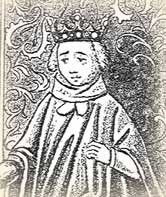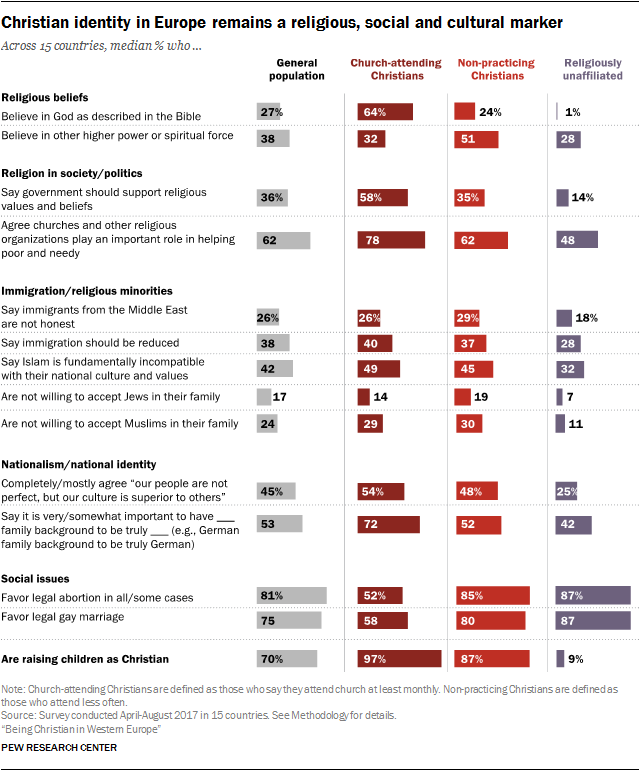CIP.nl start met een serie lange artikelen over gebedsgenezing. De artikelen zullen worden geschreven door Matthijs Vlaardingerbroek en hierna worden aangevuld worden met interviews en artikelen van andere christenen in Nederland.
In dat land kijken heel wat gelovigen op naar gebedsgenezers en kan men heel wat fanatieke 'christenen' vinden. Hierbij zijn de meeste gelovige Nederlanders er van overtuigd dat God ook vandaag de dag nog steeds kan genezen en dat dit,
hoewel niet in de mate van de tijd van Jezus, soms nog steeds gebeurt.
Men mag niet vergeten dat in de bijbel duidelijk staat dat de mensen moeten aankloppen en vragen, alsook dat God niemand onnodig laat afzien en steeds bereid is om mensen nabij te komen. zo mogen wij er zeker van zijn dat God nog steeds bovennatuurlijk ingrijpt in het leven van mensen, die
hierdoor op een wonderbaarlijke manier bevrijding, genezing en herstel
vinden. Echter zien wij dat niet iedereen geneest die God om genezing vraagt. Eerlijker zou zijn om te zeggen
dat slechts een heel klein percentage van christelijke (en
niet-christelijke) zieken genezen. Op de vraag:
“Waarom konden Jezus en zijn discipelen veel meer mensen met Gods kracht genezen dan wij vandaag de dag?”
heeft de artikelen schrijver ook geen kant-en-klaar antwoord. Hij denkt er wel veel over
na en blijft op zoek naar mogelijke verklaringen.
Joop Paardenpoep reageerde al op de aanzet van de reeks en schreef:
Meneer Vlaardingerbroek is op basis van z'n eigen pijn en frustratie al lange tijd hard aan het roepen, maar nu graag een keer cijfers en argumenten!
Dat zou ook niet slecht zijn dat wij eens echt cijfers zien van al dat werk dat die Nederlandse gebedsgenezers leveren en welk resultaat zij kunnen opbrengen. Als wij ze op televisie aan het werk zien geloof ik dat er veel poespas bij komt te kijken en dat het show werk er de bovenhand haalt, waarbij men de kwaliteit van het predikingswerk en genezingswerk in twijfel kan trekken.
God heeft een duidelijk doel met ons mensen en met zijn hele schepping.
In het Nieuwe Testament wordt dat helder en duidelijk neergezet:
“ … opdat je zult volstromen met Gods volkomenheid …”!Ook weten wij dat de mens zelf de wereld in handen heeft en dat God hem de mogelijkheid heeft gegeven om zijn plan te trekken, de wereld te regeren en om zelf keuzes te maken. In deze materialistische wereld zien wij dat de meerderheid wil blijven vasthouden aan de vele leugens van de tegenstanders van God en hierdoor verstoppertje blijven spelen voor God, waardoor wij helaas ook buiten het doel en het Plan van God blijven.
Een groot probleem in onze tijd is de opstelling tegenover het Woord van God, zowel in het modernisme in de religie, als ook in allerlei overleveringen en leringen van mensen, die nog steeds de voorkeur wensen te geven aan menselijke leerstellingen in plaats van Bijbelse leerstellingen.
Hierdoor wordt het Woord van God bij veel mensen van zijn kracht beroofd en krijgen een heleboel mensen geen duidelijkheid door dat zij aan die verwarrende dogma's vasthouden.
Hierbij kan men de vraag stellen of die mensen die naar zoor gebedsgenezers gaan wel degelijk geloven of hopen op een mirakel en zo van hun pijn verlost te zijn. Voor sommigen doet het er eigenlijk niet toe of die persoon van de duivel of iemand anders komt, als zij maar genezen zijn.
Manuela Dieleman zegt hier op
Eigenlijk is het heel eenvoudig: Wie niet gelovig en vertrouwend bidt om genezing, wordt in ieder geval niet genezen. En als je er wel om bidt, laat je God vrij, want Hij weet het beste wat goed voor je is en voor Zijn plan met je leven in Zijn koninkrijk.Dat God weet wat het beste is voor ons zien veel mensen echter niet zitten. een grote meerderheid denkt zelf wel te weten wat voor hen het beste is. Daarbij is bij vele mensen het vertrouwen in God ver te zoeken. Ook mag men niet vergeten dat de meerderheid van die bezoekers aan gebedsgenezers nog eens mensen zijn die wie weet een verkeerde god aanbidden. Als zij al gelovig zijn hangen zij meestal een drie-eenheidskerk aan en aanbidden zij Jezus als hun god in plaats van de God van Jezus te aanbidden. Vraag is dan ook in welke mate God hun geloof in Jezus als een aanvaardbaar geloof of hun vraag als een haalbare kaart wil aanschouwen.
Kan men niet stellen dat wie het Woord van God aan de kant schuift, niet moet menen dat hij aanspraak kan maken op de werking van God en op het eeuwige leven?
Is er in de Schrift niet duidelijk aangegeven dat men slechts één God mag aanbidden? Jazeker! En dat is wat mensen sowieso zullen moeten komen in te zien. Ook zullen de mensen moeten komen beseffen dat God er wel wil zijn voor hen die in Hem willen geloven maar dat Hij hen niet zomaar kan vrijwaren van al het slechte, doordat de mens de wereld in handen heeft en God ook niemand voor zich wil winnen op Zijn wijze van geven of iemand aan Hem gebonden krijgen wegens de verwachtingen van mensen naar Hem toe. Dat zou trouwens al te makkelijk zijn om dan de 'suikernonkel' of 'naïeve papa' te paaien en alles van hem los te krijgen.
Men kan om een goed inzicht in die materie te krijgen best het verhaal van Job nog eens door nemen. Ook al was hij een gerechtvaardigd mens die het eerst zeer goed had, kwam hij ook in de miserie en konden allerlei mensen rondom hem ook beschuldigingen uiten naar hem, dat hij niet godsvruchtig genoeg was, enz. maar toch bleef Job getrouw aan God. Wij ook, doorheen al onze zorgen, problemen, pijnen en verdriet moeten wij onze weg door dit leven banen en vertrouwen op God, die ons hart kent.
Ook al moeten wij in dit leven misschien ferm afzien, mogen wij er op aan dat diegene die het Woord van God hoort en ernaar handelt, ‘zalig’ (volmaakt gelukkig) zal zijn en worden.
Betreft predikers die rond gaan om mensen het Goede Nieuws te verkondigen maar ook handen op te leggen en te genezen, kan men de vraag stellen in welke mate dat in een religieuze dienst moet plaats grijpen en in welke mate de besproken genezingsdaden van de eerste eeuw, verricht door de apostelen, nu ook nog door de huidige verkondigers kunnen verricht worden of de vraag stellen door wie en voor wie.
Naar aanleiding van de CIP reeks merkt Wim Peeters ook op:
In Mattheus 4:23 zien wij dat het "seizoen" van genezingen begon met het onderwijzen exclusief en uitsluitend aan het Joodse volk over koningschap van een aards rijk. Dat bleef ook aanhouden tot de Joden aanleiding vonden het koningschap over een aardse koninkrijk niet langer meer kon worden verwacht. Immers werd duidelijk in (Handelingen 15) binnen het Evangelie van het kruis en de overwinning over de dood, er geen onderscheid meer mocht bestaan, (vers 9) over "hen" heidenen en "ons" Joden.
 As kid I loved "Uncle Tom's Cabin", in full Uncle Tom’s Cabin; or, Life Among the Lowly,
As kid I loved "Uncle Tom's Cabin", in full Uncle Tom’s Cabin; or, Life Among the Lowly, 
 In 1380, the Archbishop of Canterbury, Simon of Sudbury became Lord
Chancellor of England. It was an honor that cost him his life. Outraged
by a corrupt church, a failing war with France, and the hardship of
special taxes, England's peasants revolted. Under the leadership of men
like Wat Tyler, Jack Straw, and John Ball, they petitioned for the
abolition of serfdom, and the reform of tithes, game laws and use of the
forests. Above all they wanted the hated poll (head) tax abolished. Archbishop Sudbury had approved this crushing burden. The
Roman Church was at a low ebb of respect at the time, particularly
because of the great schism which had rival popes warring with one
another.
In 1380, the Archbishop of Canterbury, Simon of Sudbury became Lord
Chancellor of England. It was an honor that cost him his life. Outraged
by a corrupt church, a failing war with France, and the hardship of
special taxes, England's peasants revolted. Under the leadership of men
like Wat Tyler, Jack Straw, and John Ball, they petitioned for the
abolition of serfdom, and the reform of tithes, game laws and use of the
forests. Above all they wanted the hated poll (head) tax abolished. Archbishop Sudbury had approved this crushing burden. The
Roman Church was at a low ebb of respect at the time, particularly
because of the great schism which had rival popes warring with one
another.



